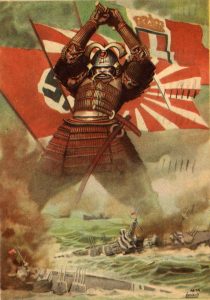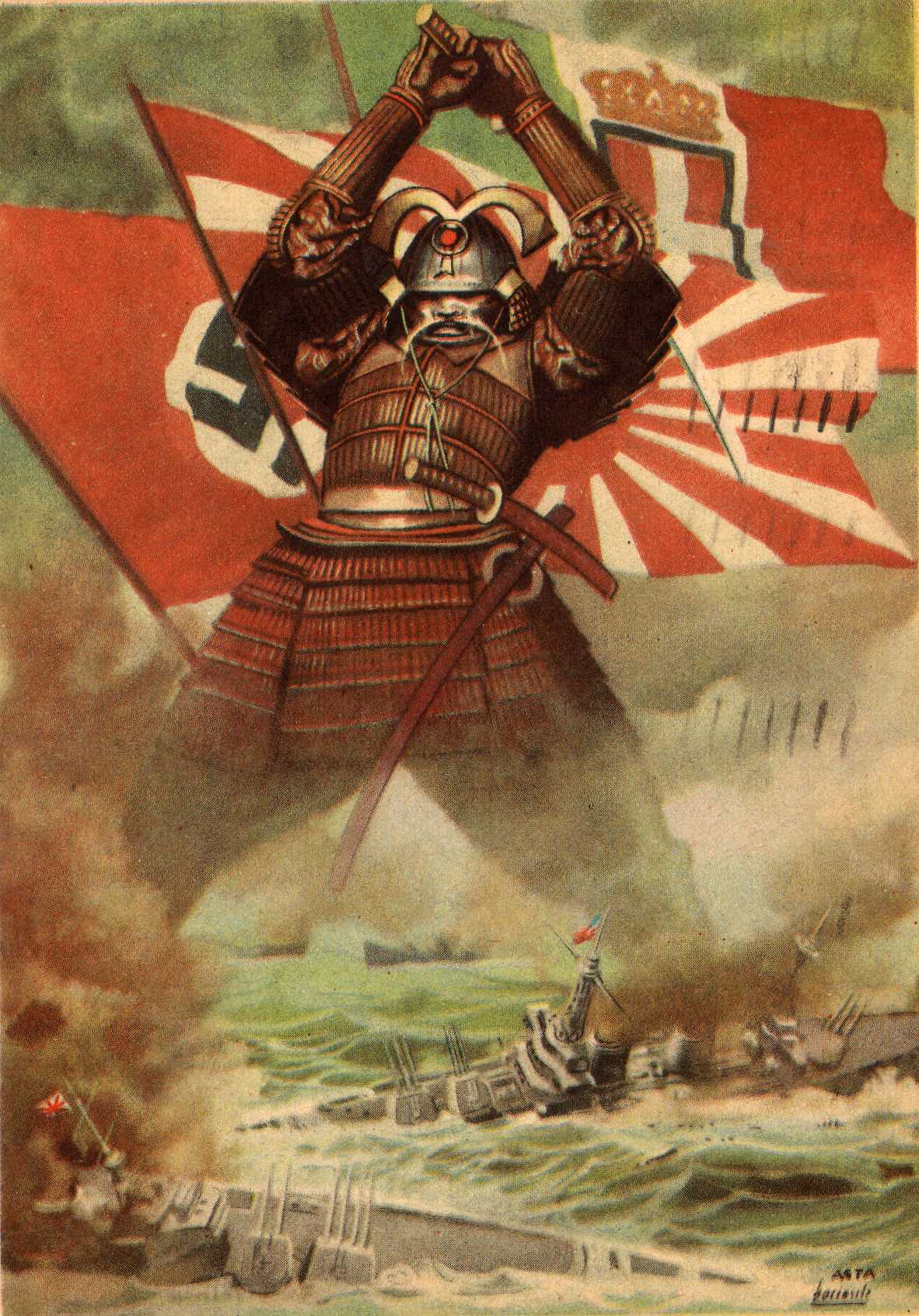
Years ago, in my American Military History class at Gettysburg, our professor began our foray into the Second World War with a curious statement: World War II should actually be considered to have begun in 1937, with the Japanese invasion of China. While normally I would applaud efforts to reduce Eurocentrism and emphasize global connections, I internally scoffed at what I then (and still) considered to be a ridiculous notion. The whole world was not at war yet, only Japan and China; how then could you say that the Second World War had begun? This memory was called to mind recently as Kevin and I reflected on how we define world wars and global conflicts in modern history (found here), and my thoughts began to wander to other, less orthodox, conclusions. Though Kevin and I did not exactly agree on a precise definition of a ‘world war,’ we did agree on three general criteria. Perhaps the most fundamental of these, and the starting point of our debate, was the scope of fighting. A world war is typically a war in which fighting occurs across most of the world. We even later reach the conclusion that this fighting must be connected in some way, as part of a single, cohesive war effort. I was led further and further towards a daring question: if Japan and China’s isolated fight should not count as the beginning of World War II, why should Britain, France, and Germany’s?
Without exception, histories of the Second World War agree that the conflict began with the German invasion of Poland in September of 1939. Finally unwilling to placate German territorial ambitions any further, Britain and France declared war. The shockingly successful German blitzkrieg in Poland was followed by eight months of “Phoney War,” as both sides did little more than jockey for position. Then came the German invasion of France and the Low Countries in May of 1940, and with France’s fall Britain found itself resisting Germany and its Italian allies alone for one and a half years. Meanwhile, Japanese forces continued to conquer swathes of Chinese territory, committing horrendous atrocities in the process. While these two conflicts would certainly become connected with America’s entry into the war following the Japanese attack on Pearl Harbor in December of 1941, the Axis Powers had not even been officially formed until November of 1940, and no Japanese military action took place against Britain’s overseas colonies until late 1941. Indeed, the terms of Germany, Italy, and Japan’s Tripartite Pact bound them to common defense going forward, but explicitly excluded ongoing conflicts from consideration. As of the evening of December 6, 1941, then, the world had seen two years of quite separate conflicts: one an East Asian affair, the other taking place exclusively in Europe and North Africa. Hardly does this a world war make.
It is certainly easy to see why 1939 has been held as the beginning of the Second World War since, well, nearly its beginning. As mentioned above, the conflict of the late 1930s would escalate into the global conflagration of the 1940s, and would be brought to an end by one Herculean effort. As always, there are forces of Eurocentrism at play as well, and I am certain that the answer to my original question is that Britain, France, and Germany are still implicitly considered mightier, more impactful world powers than Japan or China in this period, despite the geographical confines of their feud. In fact, the best argument for retaining the traditional timeline of World War II comes from the third of Kevin and my criteria: participation. While its institutions, power, and prestige may very well have been in decline, the British Empire never covered more territory than it did on the eve of the Second World War. Any conflict that involved Britain necessarily involved half the world, even if fighting didn’t cover it. Britain could not have stood alone against the Axis without legions of Canadian, African, Indian, and Oceanic men and materiel, and their stories should all be given more attention, not less.
So perhaps World War II should be considered as running from America’s declarations of war in 1941 to Japan’s surrender in 1945. Or perhaps not. Perhaps this is all a rather pointless exercise in semantics. After all, these conflicts happened, and whatever paltry words we use to label them will not affect their causes, course, and conclusions. Then again, definitions are important, and maybe through pursuing their implications in seemingly-useless thought experiments, we can better explore their implications and refine them for other, more important applications. Whatever the case here, I imagine my musings might ruffle a few feathers, but what else is a good thought experiment for?
